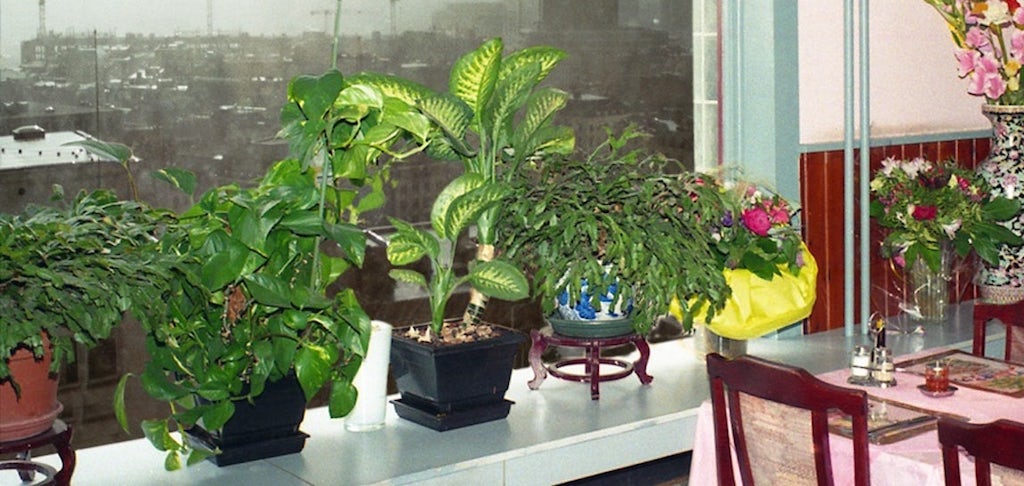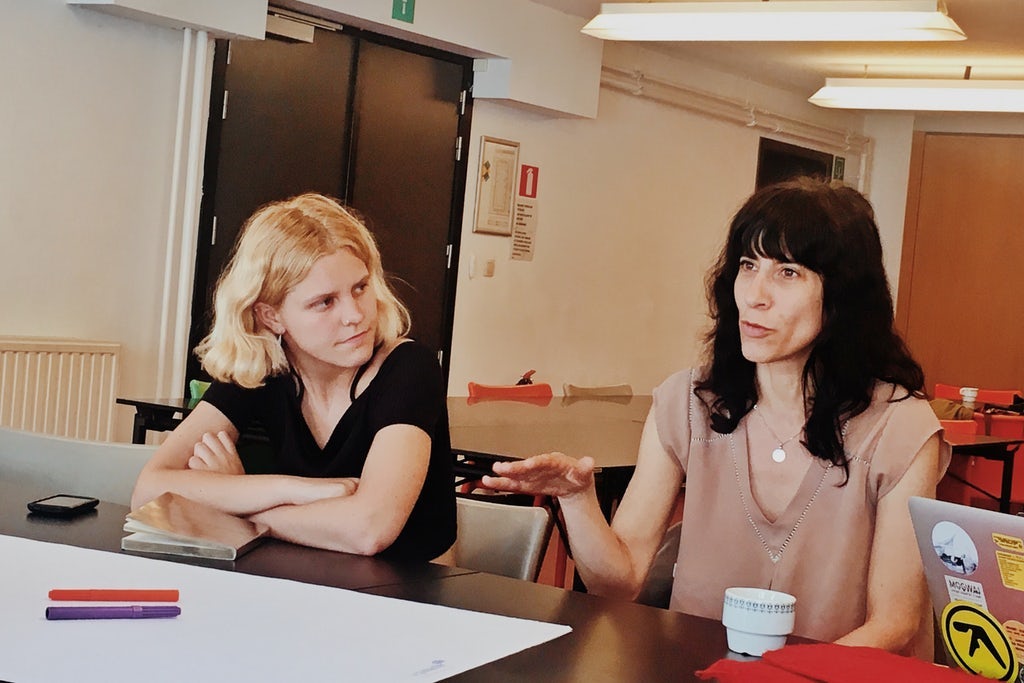
Personal statement on the international #6: International exchanges about local projects

To complement the research and reflection done in this trajectory we hosted inspiration sessions to discuss the alternative and sustainable ways of working internationally in the arts. Performing artists Einat Tuchman, Benjamin Verdonck and Rósa Ómarsdóttir presented their cases and shared their experiences. To conclude, we asked them to write down a personal statement.
I arrived in Brussels in 2000. For more than ten years I danced in choreographies and created my own pieces with the aim of touring all over the world with companies such as Les Ballets C de la B, Victoria, and so on. I do appreciate and value the theatre environment where a creation can grow and achieve its potential by encountering multiple audiences. But with the evident change in world politics I slowly started to feel the discrepancy between what was performed on stage and the whole social context in which it is presented. The theatre space is open to a defined social economical class. The performance is a one-time event, and even if it had a great impact on its audience, it does not insist on social transformation through dialogue.
With Les Ballets C de la B we toured a piece that was about poverty and social problems. We could not perform in Brazil because it was impossible to replace 20 musicians, for artistic integrity, with recorded music.
After all kinds of such experiences I decided to stop everything. I went to study at a.pass, where each participant had his or her own individual research but also worked collectively. While at a.pass, I revisited my socialist past growing up in a kibbutz. I started researching how individual identity is created in constant relation to its collective environment.
In Saint-Josse I felt like I was travelling much further than I ever did with all those international companies.
To be able to explore this further I wanted to focus on the city I live in and to explore how it shapes me as an artist and defines who I am. I decided to look for the identity of the smallest, poorest and most multicultural community in Brussels, Saint-Josse.
As an ex-Israeli it was the first time I dived into encountering people from diverse Muslim cultures. That exchange changed me and changed the way I look at Brussels. I started my research by knocking on people’s door and asking them to host me and to tell me a story about their favourite place in Saint-Josse. I felt like I was travelling much further than I ever did with all those international companies. After one year of all kinds of activities in Saint-Josse I created a project on hospitality that was part of the KVS project Tok Toc Knock.
During this research, I encountered many cultural houses: Flemish, Arab, Turkish, Christian, Walloon. I realised that these places are very important if we want to influence and process social relations. And maybe the fact that they each belong to a specific culture actually creates a segregation in one community. So I asked myself: what if I would create a new cultural house that would be about gestures of invitations, about creating encounters, events and ceremonies that related to everyday life and to our contemporary culture? I proposed it to the commune of Saint-Josse, but somehow the process stopped at a certain point.
It was just before the last elections that I realised even more that we artists should focus on proposing local transformative artistic formats – if not we are going to lose the freedom that this country proposed, which is the reason why we all came here.
Once I took a tram from Schaarbeek to Fort Jaco looking for cultural houses. The richer the area became, the fewer cultural houses I encountered. I felt that I should propose artistic projects addressing the richer classes in this country. To become their guest and propose a creative dialogue about the individual and its environment.

Then I moved to Molenbeek right before the attacks. There I started to develop a local project in the Maison de Quartier. I initiate all kinds of activities, including creative exchanges among inhabitants. Every year I organise a ‘fête de quartier’. It is a kind of ceremony people are familiar with, so they collaborate more easily. Last year before the fête, I went to Venice with workspacebrussels for the project Dark Matter Games. With a group of 20 artists, we were hosted at S.a.L.E. Docks, an occupied gallery, and together with their artists, we tried to create a reaction to the Venice Biennale. The Italian artists of S.a.L.E. Docks are working within a very different economic reality. There is no money or time to create art. We arrived there with our comfortable positions and luxurious art practices. It took us as ‘Belgian’ artists a long time to understand that we have to relate to the reality we are performing in. We cannot just arrive with our beautiful art practices, drop them there and go back home; we have to relate to the context. During the performances at the Biennale I was preparing the fête de quartier. I was on my mobile phone skyping with people in Venice about how to recollectivise the public space. For me, these kinds of exchanges make up the internationalisation of my practice. How can people who are working locally in many different places tackle very similar issues, exchange, nourish each other and create a different ideology? Another aim I have is to pool many artists into my little local initiative. There are many artistic methodologies that can also be used outside of the theatre space to help recreate the social fabric.





